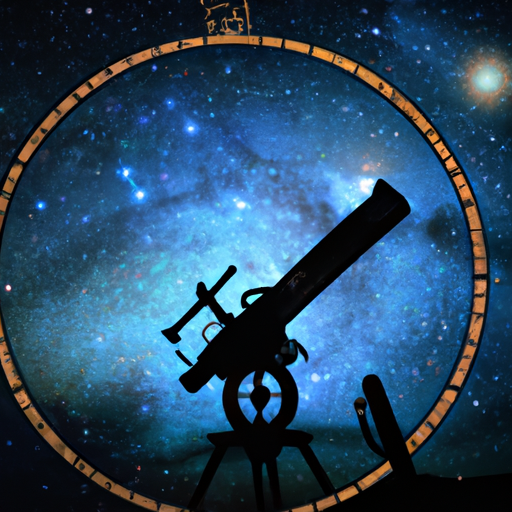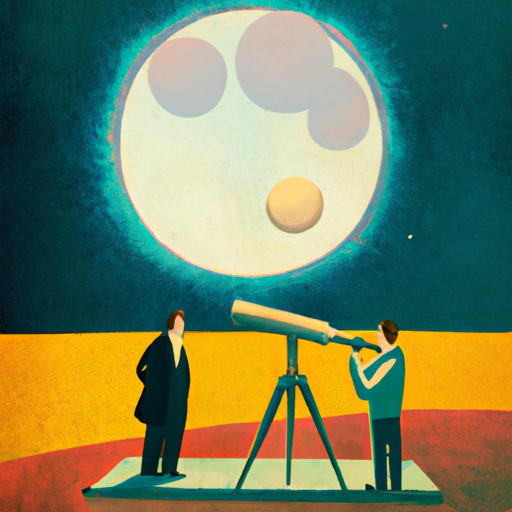Are you curious about the differences between astronomy and astrology? Brace yourself for a mind-bending journey as we delve into the realms of scientific truth versus pseudoscience. Prepare to be amazed by the contrast between objective observations and subjective interpretations. Get ready to explore the world of empirical evidence versus personal beliefs. In this article, we will unravel the major disparities between these two disciplines, enlightening you with the knowledge you need to navigate the celestial realms.
Key Takeaways
- Astronomy follows rigorous scientific methodology, while astrology is based on subjective interpretations lacking scientific evidence.
- Astronomy relies on objective observations and empirical evidence, while astrology is based on personal beliefs and interpretations.
- Astronomy employs advanced instruments and techniques for data collection and analysis, while astrology relies on personal beliefs and lacks empirical evidence.
- Astronomy is supported by mathematical models and scientific theories, while astrology has not been scientifically proven and lacks empirical data.
Scientific Vs. Pseudoscientific

When it comes to distinguishing between astronomy and astrology, it is crucial to understand the fundamental disparity between scientific and pseudoscientific practices. Astronomy is a scientific discipline that follows rigorous scientific methodology, while astrology is considered a pseudoscience. Scientific methodology involves the systematic observation, measurement, and experimentation to gather empirical evidence and test hypotheses. Astronomers use telescopes, satellites, and other advanced instruments to observe celestial objects and phenomena, collecting data that can be analyzed and interpreted using mathematical models and scientific theories.
On the other hand, astrology relies on the belief that the positions and movements of celestial bodies can influence human behavior and events on Earth. Astrological predictions are made based on the interpretation of the positions of the planets, stars, and other celestial objects at the time of a person’s birth or during specific events. However, these interpretations lack scientific evidence and are not supported by empirical data.
The disparity between scientific and pseudoscientific practices becomes evident when comparing the objective nature of astronomy with the subjective nature of astrology. While astronomy focuses on the objective study of the universe, astrology heavily relies on subjective interpretations and personal beliefs. This distinction sets the stage for the subsequent section, where we will delve into the differences between observations and interpretations in the fields of astronomy and astrology.
Observations Vs. Interpretations

To understand the disparities between astronomy and astrology, it is crucial to differentiate between the objective observations made in astronomy and the subjective interpretations employed in astrology. In astronomy, observations are based on the scientific method and rely on data analysis obtained from the study of celestial bodies. Astronomers use advanced instruments and techniques to collect precise measurements and record factual information. They study the positions, motions, and characteristics of stars, planets, galaxies, and other celestial objects.
Data analysis plays a fundamental role in astronomy. Scientists analyze the collected data to uncover patterns, relationships, and physical laws that govern the behavior of celestial bodies. This objective approach allows astronomers to make accurate predictions and formulate scientific theories about the universe.
On the other hand, astrology relies on subjective interpretations of celestial events and their supposed influence on human behavior and events on Earth. Astrologers believe that the positions and movements of celestial bodies can provide insights into personality traits, relationships, and future events. However, these interpretations lack scientific evidence and are often based on ancient traditions and beliefs.
Objective Vs. Subjective

Now let’s delve into the distinction between objective and subjective approaches in the context of astronomy and astrology. Astronomy takes a scientific approach to studying celestial phenomena, relying on systematic observation, measurement, and analysis. Astronomers use advanced telescopes, satellites, and other instruments to collect data about stars, planets, galaxies, and other cosmic objects. They strive to understand the laws of physics and the natural processes that govern the universe. Their findings are based on empirical evidence and can be replicated and validated by other scientists.
On the other hand, astrology takes a subjective approach, focusing on the interpretation of celestial phenomena and their supposed influence on human behavior and events. Astrologers believe that the positions and movements of celestial bodies, such as the Sun, Moon, and planets, can provide insights into personality traits, relationships, and future events. However, astrology lacks scientific evidence and is not considered a legitimate scientific discipline.
Empirical Evidence Vs. Personal Beliefs

Based on the distinction between objective and subjective approaches discussed earlier, it is important to recognize the fundamental disparity between empirical evidence and personal beliefs when comparing astronomy and astrology. Astronomy, as a scientific discipline, relies on empirical data and observations of celestial bodies to understand the universe. Scientists use telescopes, satellites, and other advanced technologies to gather data and analyze the physical properties of stars, planets, and galaxies. This data is then subjected to rigorous analysis and peer review to ensure its accuracy and reliability.
On the other hand, astrology is based on personal beliefs and interpretations of celestial bodies’ positions and their influence on human behavior and events. Astrologers believe that the positions of the stars and planets at the time of a person’s birth can provide insights into their personality traits, relationships, and future. However, these beliefs lack empirical evidence and have not been scientifically proven.
While astronomy is rooted in scientific methods and relies on empirical evidence, astrology is considered pseudoscience. It is important to differentiate between the two, as relying on personal beliefs rather than objective evidence can lead to misconceptions and misunderstandings about the nature of the universe.
Frequently Asked Questions
What Are the Different Scientific Fields That Fall Under the Umbrella of Astronomy?
Astronomy encompasses various scientific fields. Theoretical astronomy focuses on mathematical models and simulations, while observational astronomy involves studying celestial objects through telescopes. Cosmology explores the origins and evolution of the universe, while planetary science focuses on the study of planets.
How Does Astrology Interpret Celestial Events and Their Influence on Human Behavior?
Astrology interprets celestial events by using various methods, such as horoscopes and birth charts, to predict how they may influence human behavior. These interpretation methods are based on historical beliefs and are not scientifically supported.
Can Astrology Be Considered a Valid Form of Science?
Astrology cannot be considered a valid form of science due to the lack of scientific evidence supporting its claims. While it may have cultural and historical significance, astrology does not meet the rigorous standards of scientific validity.
Are There Any Famous Astronomers Who Have Made Significant Contributions to the Field?
There are many famous astronomers who have made significant contributions to the field. Their work has advanced our understanding of the universe and paved the way for new discoveries.
What Are the Main Criticisms Against Astrology as a Pseudoscience?
The main criticisms against astrology as a pseudoscience include its lack of empirical evidence, reliance on vague statements, and inability to make accurate predictions. The ethics of astrology and the psychological impact of astrology are also questioned.
Conclusion
In conclusion, astronomy and astrology stand as stark opposites in the realm of celestial understanding. While astronomy relies on scientific observations and empirical evidence to uncover the mysteries of the universe, astrology remains rooted in subjective interpretations and personal beliefs. Astronomy’s objective nature allows for the pursuit of truth, while astrology’s reliance on pseudoscience can evoke a sense of skepticism. By understanding the major differences between the two, we can approach the cosmos with a more rational and scientific mindset.


Leave a Reply